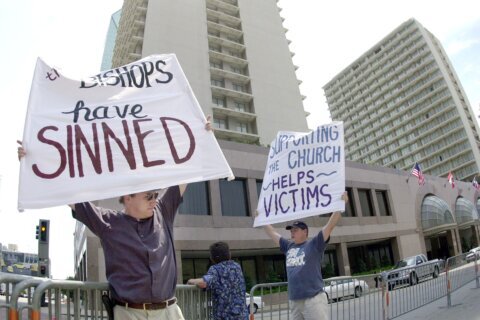CAIRO (AP) — The United Nations refugee agency said Friday that flood conditions in Sudan have hindered the delivery of aid to areas where many are already facing hunger and famine, including to a camp in North Darfur for those who have fled ongoing fighting.
The agency said in a statement that at least 11,000 people, many of them already displaced, have been affected by the heavy rains and flooding.
Much of the country has descended into a humanitarian crisis since fighting began over a year ago between the military and a powerful paramilitary group, the Rapid Support Forces, or RSF. Some of the most devastating violence and displacement has been in the country’s western provinces of North Darfur and Darfur.
A July report on hunger conditions released by the The Integrated Food Security Phase Classification, or IPC, found it likely that parts of North Darfur — especially the Zamzam camp — are experiencing “the worst form of hunger” known as IPC Phase 5. The IPC said the famine conditions in Zamzam camp were fueled by the conflict and “severely restricted humanitarian access.”
Around 320,000 people are believed to have been displaced in Al Fasher, the capital of North Darfur, since mid-April, according to the IPC, at least 150,000 of whom are believed to have moved to Zamzam camp by May to find the necessities of life. The population in that camp has expanded to more than half a million in a few weeks.
“The humanitarian needs are reaching epic proportions in the region, as hundreds of thousands of civilians remain in harm’s way and famine has recently been confirmed in a displacement site,” UNHCR said in a brief on the flooding situation.
Heavy seasonal rains have created rising floodwaters in parts of Sudan this week, and forecasts predict more storms in the coming days.
Sudanese local media reported on Wednesday that 17 people died in the northern city of Abu Hamad due to the floods, though authorities have yet to release an official death toll for casualties throughout the country.
An emergency team with the Sudanese Red Crescent concluded that 3,000 homes were destroyed in Abu Hamad.
The Darfur Network for Human Rights said the city saw steady, heavy rain for more than 10 hours.
“The situation requires urgent government intervention to provide shelter and food for those affected, and supporting thousands of displaced people who have taken refuge in the city to escape war zones. The situation calls for community solidarity and urgent assistance to confront this disaster,” the group said on the platform X.
Sudan’s national weather service on Wednesday released a flash flood warning valid until Aug. 13 for heavy rains and thunderstorms in states including Khartoum, Gezeira and North Darfur.
Copyright © 2024 The Associated Press. All rights reserved. This material may not be published, broadcast, written or redistributed.






